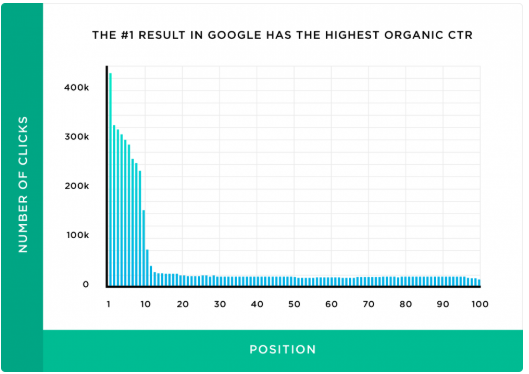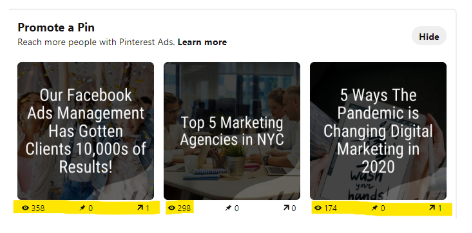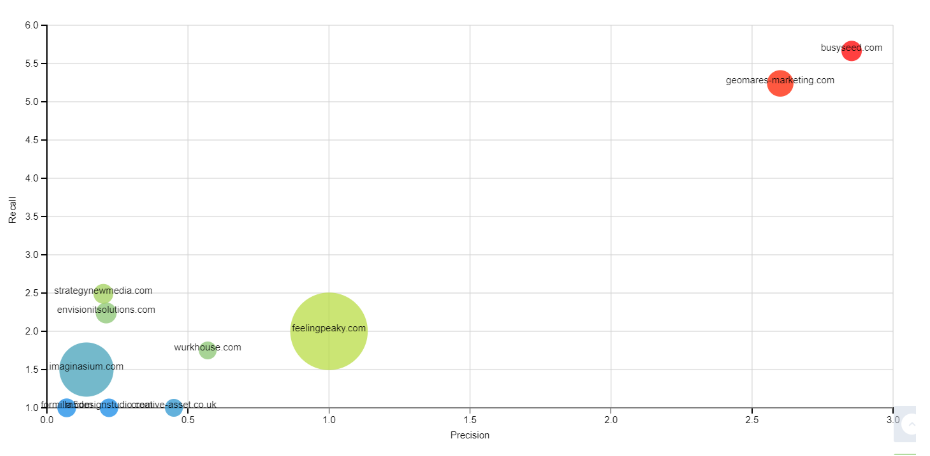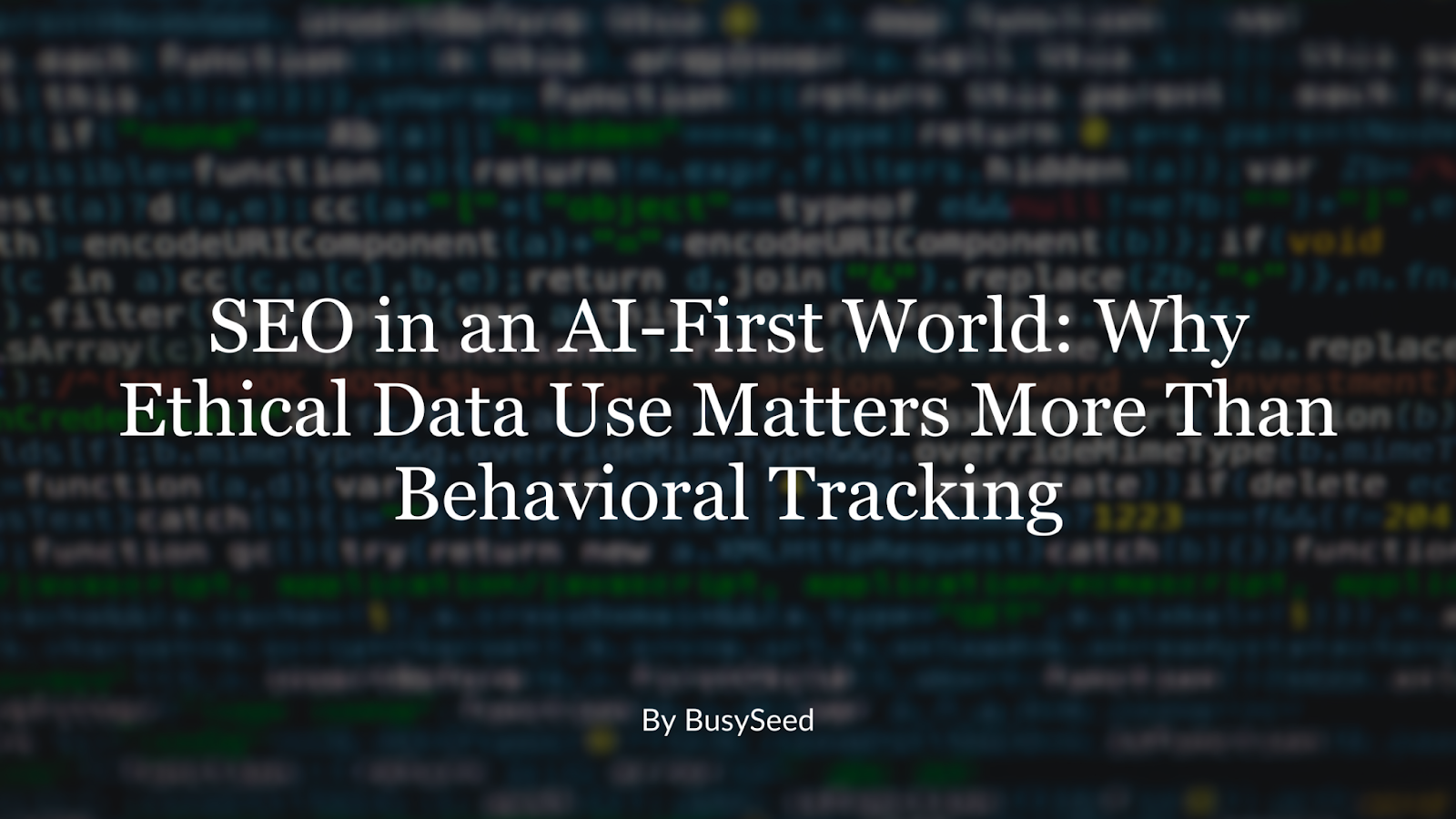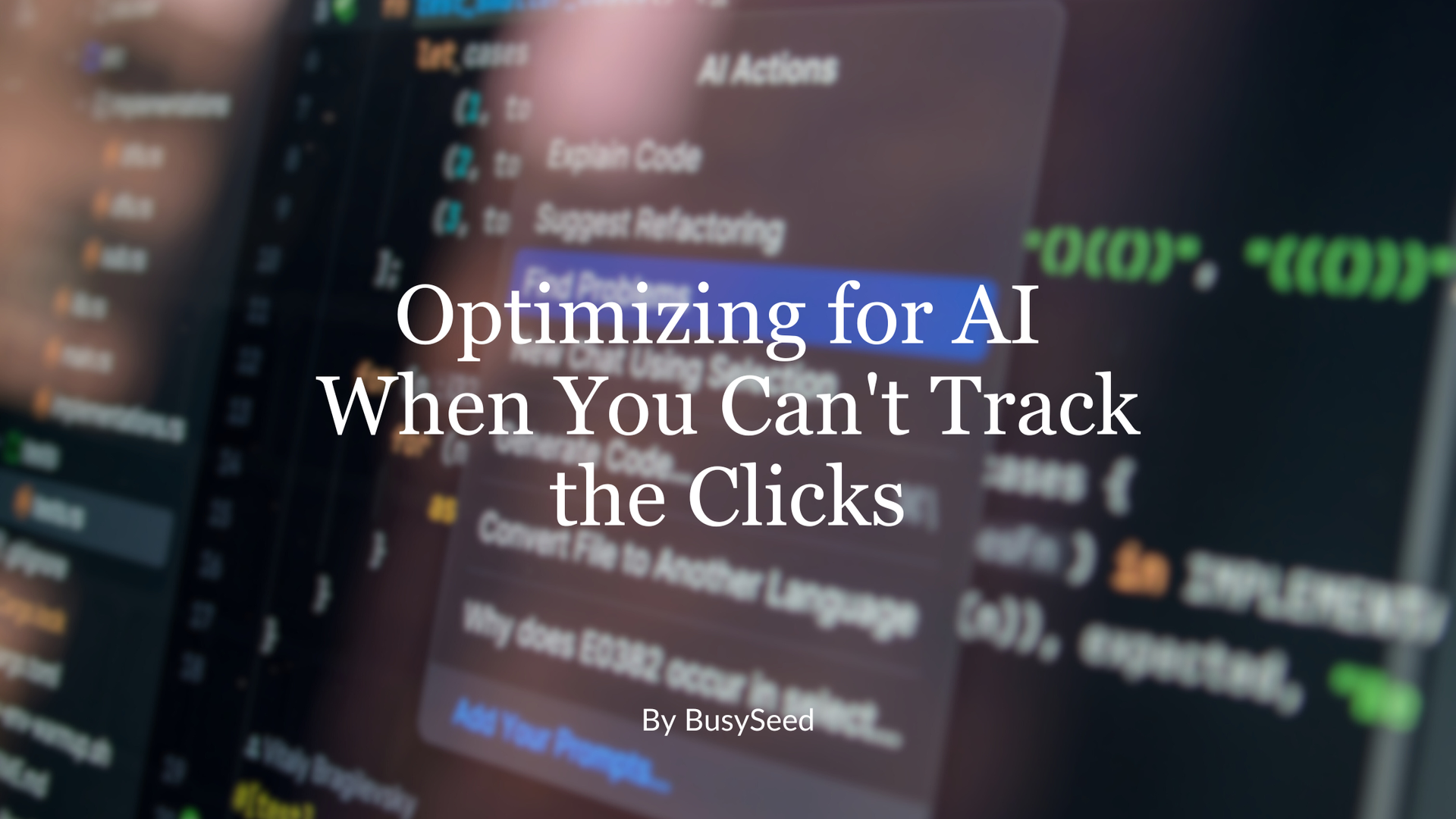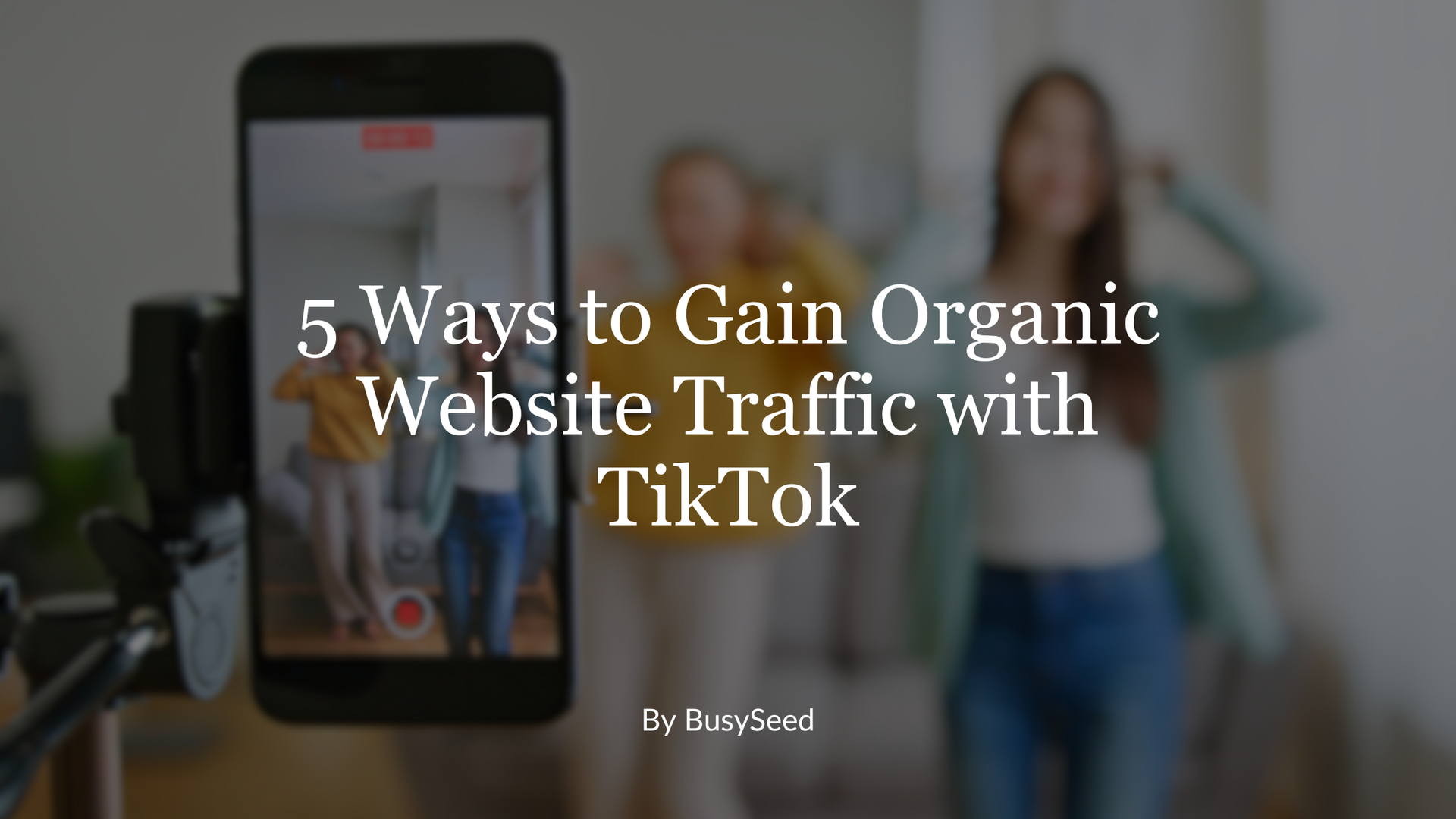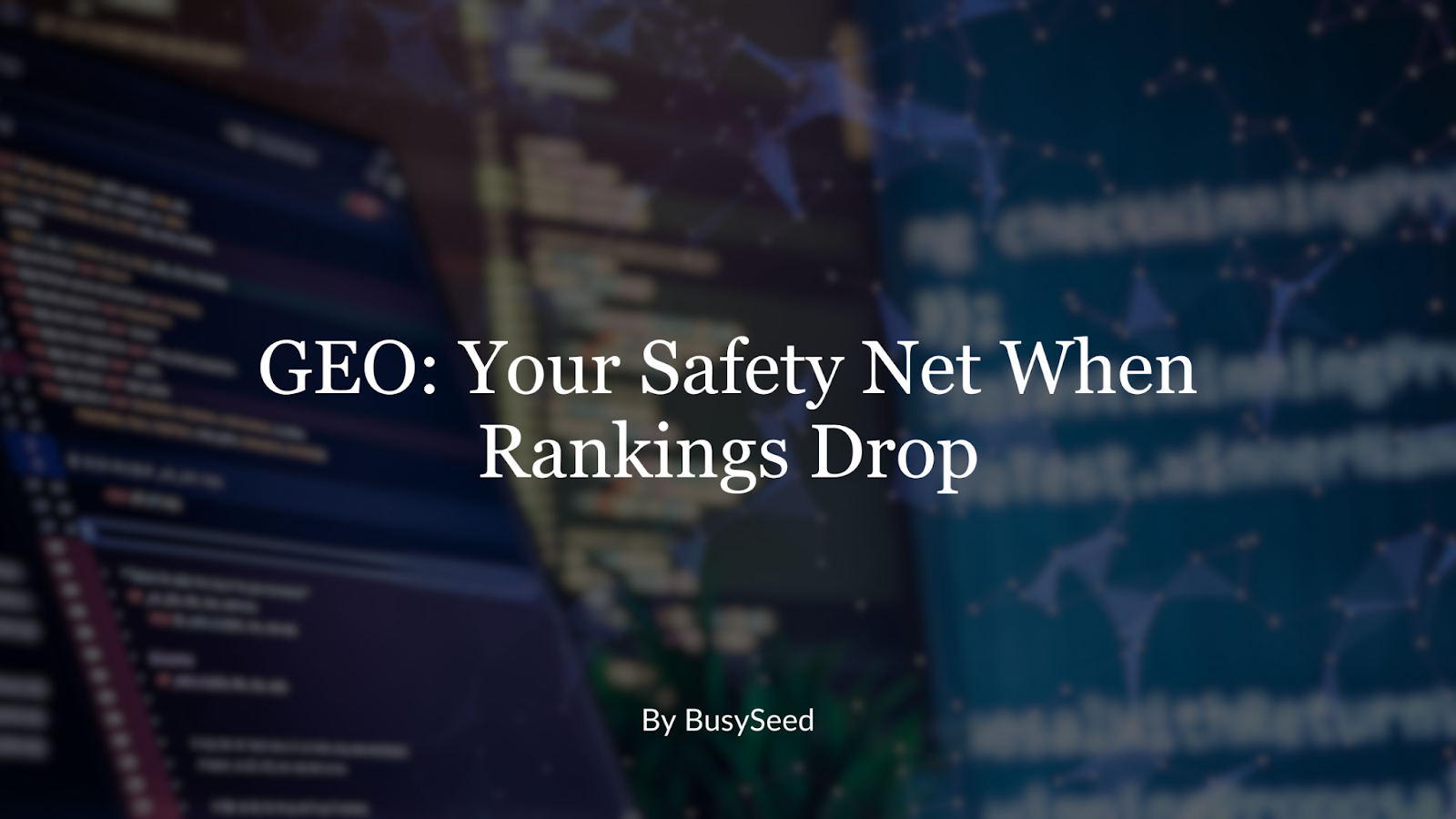How to Win the Google Search Ranking Game: 3 Tips From a Top Digital Marketing Agency
You may have mastered social media, maybe even social media advertising, but have you mastered search engine optimization? Plenty of companies have not because they're focused on the short-term business goals. Luckily for you, building up your SEO can be easy with SEO blogs. Here's how.
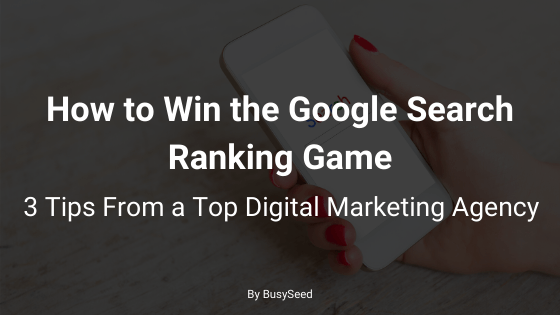
To make a long story short, Google page rank is how high a webpage appears on a Google search. The higher the rank, the better and more visible the position. The ultimate goal of any company utilizing SEO should be to get as many relevant keywords on the first page as possible. According to backlinko.com, the #1 organic result has an average CTR of 31.7%. That's a fantastic number! Backlinko also found that the #1 result is 10x more likely to get clicked on than the result in the #10 slot. In fact, the first three spots are most valuable, four and five aren't bad, and 7-10 are all roughly the same. Anything after the 10th spot sees a drastic decrease in click-throughs because people lose interest and do not scroll that far.
So how can you get your web pages to rank higher? There's actually a lot of variables involved that Google looks at. Most notably, they look at keywords on your pages, backlinks to your pages from other sites, and traffic to your pages. We go into much more detail in two previous blogs, The Scoop on Search Engine Optimization, and How to Improve Your Search Engine Optimization and Google PageRank. In these articles, we dive deeper into what search engine optimization is, and a few ways to improve it. Google page rank can take quite a bit of time to develop, but with the right tools, you'll see improved search engine optimization in no time!
Do Keyword Research Before You Write
The BusySeed team lives and dies by this rule. It is always rule number one when talking about search engine optimization, and even more so for Google page rank. Performing research prior to writing your blogs is critical for success. Keywords are words you'll use multiple times in a blog that you want Google to pick up on and start ranking you for. Each keyword is different in search volume, competition, and difficulty. In order to conduct research to find the best keywords for your business, we suggest using a third-party program such as Serpstat, Mangools, or SEMrush. Programs such as these are designed to track the organic stats of keywords. Keyword planner on Google Ads will only give you the stats for paid keywords, which can be extremely misleading when you're looking for SEO keywords.
We follow a few rules when choosing our SEO keywords.
- Make sure the keyword or phrase is something that a potential client will look for
- For example: "managed social media" is a good SEO keyword for us, but "social media" may attract people that aren't looking for marketing help
- Find SEO keywords that have a monthly search volume of at least 1000.
- We make exceptions to this occasionally if the keyword is super relevant, but generally speaking, anything lower isn't worth pursuing because people aren't hunting for it
- Avoid trying to increase Google page rank with any SEO keywords with a difficulty of over 50 (out of 100).
- The higher the difficulty the more competition. You'll need to use those SEO keywords many times before you can make a dent in the Google search rank.
- Make sure the SEO keywords you choose can be used naturally in the blog
- If you just throw in keywords willy nilly, you could actually end up hurting your Google page rank. Besides, no one will want to read a blog that is clunky and awkward.
Use SEO Keywords 3-5x Per Blog Over Multiple Blogs
Once you've researched and selected your SEO keywords, you need to know how to use them effectively. As a rule of thumb, each keyword should be used at least 3-5x per blog. Why? Repetitive use of your selected keyword makes it more obvious to Google that you want to rank
on it. You can always include keywords more frequently, particularly in SEO blogs, but make sure they are natural. The Google search ranking algorithm is very advanced, and it watches for misused keywords. For example, keywords or phrases dangling by themselves can actually decrease your rank. This one is easy to avoid; just be sure that any titles or headings include more than your chosen keyword. Another thing to avoid is spamming the blog with keywords. Google is smart and it will know if you arbitrarily shove keywords onto a page or into a blog.
When you're writing an article, it can be hard to remember to use your SEO keywords. One trick that our team came up with is to highlight each keyword in a different color as you go. That way, you're able to see how many times you use each of your selected keywords. It's greatly helped our team improve our keyword game, and our clients can very easily see what SEO keywords we are going after in each article. We also recommend tracking your keyword growth on sites like Serpstat so that you can continue to use the ones that see traction as you continue to write articles.
Promote Your Blogs Across Different Channels
Lastly, it's important to get your SEO blogs out there for the world to see. Sharing your blogs in a post will increase readership, traffic, interactions, and therefore Google search rank. When people see your blogs on social media, they are much more likely to read them or share them then they would without promotion. Shares, especially in the forms of backlinks, will help boost your Google page rank. You can pay to promote your SEO blogs in ads, but simply posting about them organically has been shown to greatly increase readership. Social media is a great platform for blog sharing because when one person shares it, their entire friend’s list can now see it. This can cause a chain reaction that could get your blog viral! Get a few great articles published with good keyword usage and you'll find yourself moving up on Google in no time!
Some channels we share our blogs on include:
- Facebook, Instagram, Twitter, and LinkedIn
- Online publishing platforms such as Medium, Quora, and LiveJournal
- Presentation-sharing websites such as Slideshare
- We adapt the blog into a condensed 5-7 slide presentation
- YouTube
- We make videos about our blog content and link back to the blog in the description for viewers who want to learn more
If you're hoping to see an improvement in your Google page rank, SEO blogs are a great avenue to head down. They can be time-consuming to produce, but they are so valuable to your business. Search engine optimization is a long-term process. While digital ads will get you immediate gratification, building up your SEO will benefit you for months and years to come. All of the top digital marketing agencies will tell you that you need search engine optimization, and they're not lying. You may not consider blogs important, but are you looking at them through the right lens? Maybe you don't care about people reading your content, but you should be all for increasing your Google page rank!
From first-hand experience, we know that SEO blogs take quite a bit of work. If you aren't ready to take on that load yourself, consider working with a top digital marketing agency like BusySeed! We are recognized by DesignRush for our SEO services, and we've gotten blogs on the first page of Google more times than we can count! In the last few months, we've had six of our own blogs on the first page (4 of them in positions 1-5), and at least five front-page blogs for our clients. We've more than doubled our ranking keywords over the last year with a consistent upward trend. Our blog writers (hi, there!) would love to help you grow your business' online presence. Together, we can increase your Google page rank and get you search engine optimized! Call (888) 353-1484 to speak to our business developers and get started!

